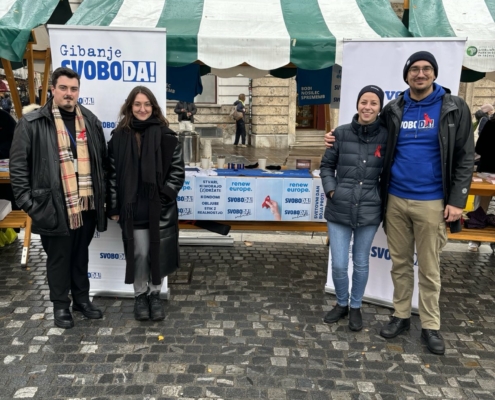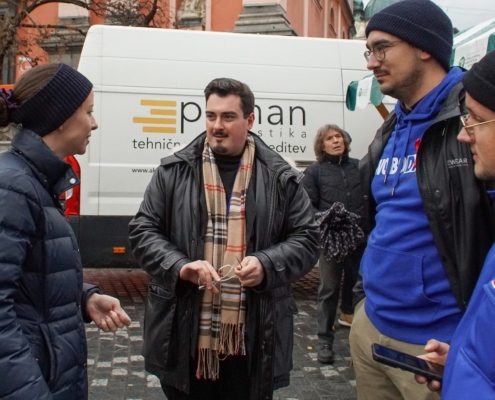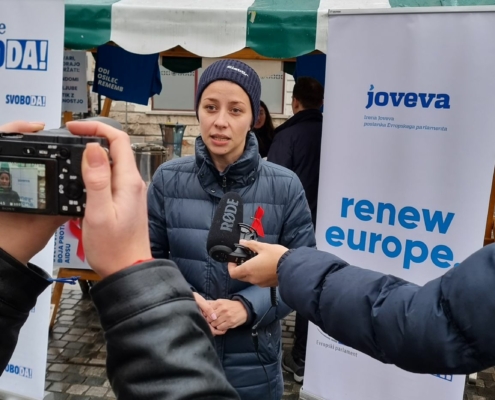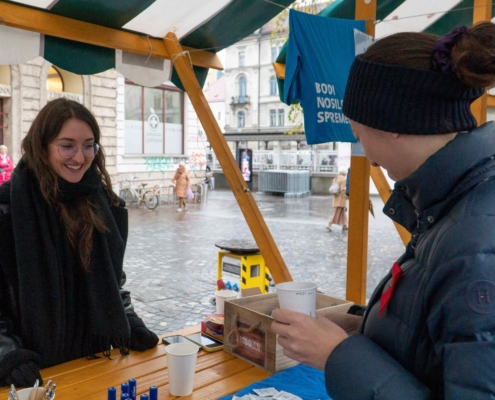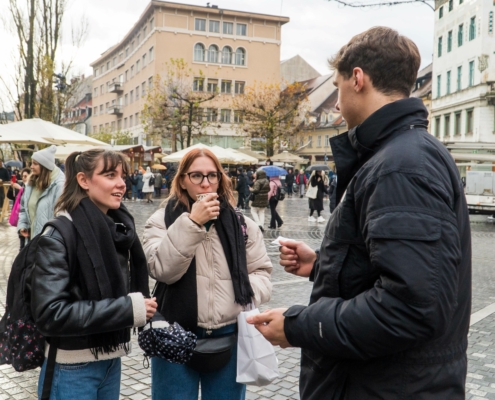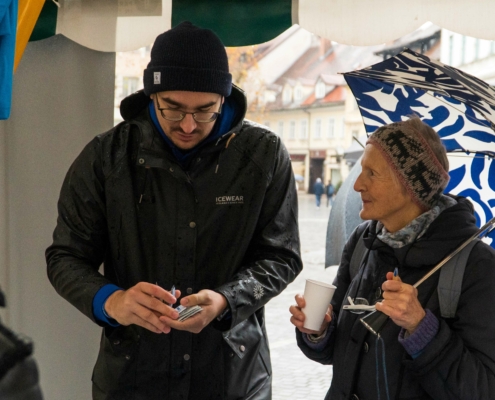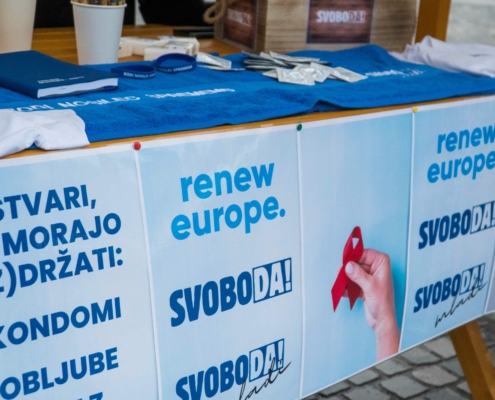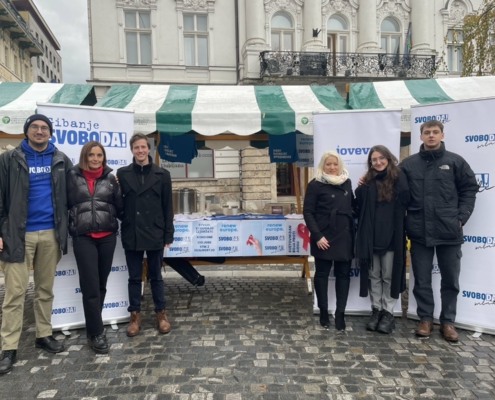At the 22nd meeting of the EU-North Macedonia Joint Parliamentary Committee, which took place during the November plenary session in Strasbourg, MEP Irena Joveva spoke about relations in the region and the state of the media. Among other things, she stressed that the people of the Western Balkans, including – or especially – the citizens of North Macedonia, deserve better. She called on the part of politicians who prefer to engage in manipulation and provocations to start realizing this: “Enough is enough.”
The two-day meeting brought together members of the Macedonian Sobranie and Members of the European Parliament, who exchanged views on current challenges and discussed the opportunities (and mistakes) on North Macedonia’s European path.
During a debate on (good) neighbourly relations, Joveva spoke in Macedonian, which she said was in honour of her late mother, as well as because she wanted to once again condemn Bulgaria’s behaviour loud and clear.
Joveva explained that regional cooperation is important, especially in terms of participation in initiatives such as the Open Balkans, while other joint initiatives with other Western Balkan countries also demonstrate concrete steps that benefit the daily lives of the region’s citizens.
“My country Slovenia may not be a direct neighbour, yet it has proved to be a true, committed friend of the whole region and a strong voice in the EU for ensuring that the region is not forgotten.”
Regarding relations with Bulgaria, Joveva expressed disappointment over its blockades, as they are contrary to EU law, which states that bilateral issues between countries should not be brought into the negotiating framework.
“I fear that blockades lead to absolutely nowhere… except to the opposite direction. And I refuse to see political debates and arguments spilling over into society and causing unrest among the people. Of course, there are still many challenges to be tackled, such as economic growth and the fight against corruption, but at the same time the past must not be dwelled on and abused for domestic political ends.”
After all these years of waiting, the citizens of North Macedonia deserve better, she reiterated firmly, adding her expectation that the accession negotiations will start soon and that the necessary reforms will be implemented without any setbacks, and above all without empty or broken promises – from whichever side.
In the part of the debate that focused on the media and civil society, Joveva emphasised the importance of free and independent media, quality journalism and a safe working environment for journalists. Further on, she insisted on the need for strong civil society organisations as the ‘watchdogs of democracy’.
“I would like to see more efforts aimed at making the media financially independent and more awareness raising campaigns on media literacy. After all, only free and independent journalists who are not afraid to work and report can produce quality news.”
The meeting concluded with the adoption of joint recommendations and a joint message on cooperation and support for the reforms needed to accelerate North Macedonia’s path towards full EU membership.

